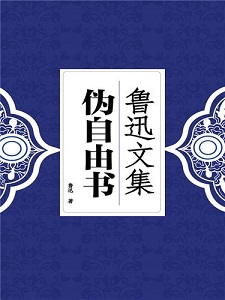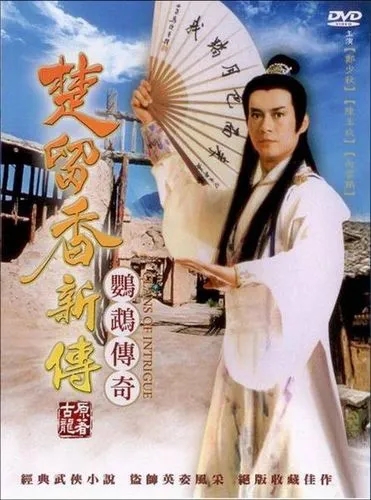What had become of Jean Valjean?
Immediately after having laughed, at Cosette's graceful command, when no one was paying any heed to him, Jean Valjean had risen and had gained the antechamber unperceived. This was the very room which, eight months before, he had entered black with mud, with blood and powder, bringing back the grandson to the grandfather. The old wainscoting was garlanded with foliage and flowers; the musicians were seated on the sofa on which they had laid Marius down. Basque, in a black coat, knee-breeches, white stockings and white gloves, was arranging roses round all of the dishes that were to be served. Jean Valjean pointed to his arm in its sling, charged Basque to explain his absence, and went away.
The long windows of the dining-room opened on the street. Jean Valjean stood for several minutes, erect and motionless in the darkness, beneath those radiant windows. He listened. The confused sounds of the banquet reached his ear. He heard the loud, commanding tones of the grandfather, the violins, the clatter of the plates, the bursts of laughter, and through all that merry uproar, he distinguished Cosette's sweet and joyous voice.
He quitted the Rue des Filles-du-Calvaire, and returned to the Rue de l'Homme Arme.
In order to return thither, he took the Rue Saint-Louis, the Rue Culture-Sainte-Catherine, and the Blancs-Manteaux; it was a little longer, but it was the road through which, for the last three months, he had become accustomed to pass every day on his way from the Rue de l'Homme Arme to the Rue des Filles-du-Calvaire, in order to avoid the obstructions and the mud in the Rue Vielle-du-Temple.
This road, through which Cosette had passed, excluded for him all possibility of any other itinerary.
Jean Valjean entered his lodgings. He lighted his candle and mounted the stairs. The apartment was empty. Even Toussaint was no longer there. Jean Valjean's step made more noise than usual in the chambers. All the cupboards stood open. He penetrated to Cosette's bedroom. There were no sheets on the bed. The pillow, covered with ticking, and without a case or lace, was laid on the blankets folded up on the foot of the mattress, whose covering was visible, and on which no one was ever to sleep again. All the little feminine objects which Cosette was attached to had been carried away; nothing remained except the heavy furniture and the four walls. Toussaint's bed was despoiled in like manner. One bed only was made up, and seemed to be waiting some one, and this was Jean Valjean's bed.
Jean Valjean looked at the walls, closed some of the cupboard doors, and went and came from one room to another.
Then he sought his own chamber once more, and set his candle on a table.
He had disengaged his arm from the sling, and he used his right hand as though it did not hurt him.
He approached his bed, and his eyes rested, was it by chance? was it intentionally? on the inseparable of which Cosette had been jealous, on the little portmanteau which never left him. On his arrival in the Rue de l'Homme Arme, on the 4th of June, he had deposited it on a round table near the head of his bed. He went to this table with a sort of vivacity, took a key from his pocket, and opened the valise.
From it he slowly drew forth the garments in which, ten years before, Cosette had quitted Montfermeil; first the little gown, then the black fichu, then the stout, coarse child's shoes which Cosette might almost have worn still, so tiny were her feet, then the fustian bodice, which was very thick, then the knitted petticoat, next the apron with pockets, then the woollen stockings. These stockings, which still preserved the graceful form of a tiny leg, were no longer than Jean Valjean's hand. All this was black of hue. It was he who had brought those garments to Montfermeil for her. As he removed them from the valise, he laid them on the bed. He fell to thinking. He called up memories. It was in winter, in a very cold month of December, she was shivering, half-naked, in rags, her poor little feet were all red in their wooden shoes. He, Jean Valjean, had made her abandon those rags to clothe herself in these mourning habiliments. The mother must have felt pleased in her grave, to see her daughter wearing mourning for her, and, above all, to see that she was properly clothed, and that she was warm. He thought of that forest of Montfermeil; they had traversed it together, Cosette and he; he thought of what the weather had been, of the leafless trees, of the wood destitute of birds, of the sunless sky; it mattered not, it was charming. He arranged the tiny garments on the bed, the fichu next to the petticoat, the stockings beside the shoes, and he looked at them, one after the other. She was no taller than that, she had her big doll in her arms, she had put her louis d'or in the pocket of that apron, she had laughed, they walked hand in hand, she had no one in the world but him.
Then his venerable, white head fell forward on the bed, that stoical old heart broke, his face was engulfed, so to speak, in Cosette's garments, and if any one had passed up the stairs at that moment, he would have heard frightful sobs.
冉阿让后来怎么样了?
在珂赛特的亲切命令下,冉阿让笑了之后,乘人不备,立刻站起身来,没有人察觉,他走到了候客室。就是在这间屋子里,八个月以前,他满身污泥,又是血,又是灰尘,把外孙送来给外祖父的。那些老式的木器上都有着花和叶的装饰,琴师们坐在过去放置马吕斯的长椅上。巴斯克穿着黑色上衣、短裤、白袜和戴着白手套,把玫瑰花圈放在每一盘要上的菜的四周。冉阿让向他指着自己吊着绷带的手臂,托他解释他缺席的原因,就出去了。
饭厅的格子窗向着大街,冉阿让一动不动地在黑暗中闪亮的窗子下面站了几分钟。他听着。酒席上的嘈杂声传到了他耳边。他听见外祖父那高亢而带有命令口气的讲话、小提琴声、杯盘的叮当声、哈哈大笑声,在整个欢乐的喧哗声中,他能辨别出珂赛特的温柔而愉快的声音。
他离开了受难修女街,回到了武人街。
回家时,他经过圣路易街、圣卡特琳园地街和白大衣商店,这路线比较长,但这是三个月以来,为了避免拥挤和老人堂街的泥泞,他和珂赛特每日从武人街到受难修女街常走的路。
这条珂赛特走过的路,使他摒弃了任何其他路线。
冉阿让回到家。他点起蜡烛上楼。房间是空的。杜桑也不在了。冉阿让在房中的脚步声比往日要响些。所有橱柜都敞开着。他走进珂赛特的房间。床上已没有垫单。细棉布的枕心,没有枕套也没有花边,放在褥子脚头折叠好了的被套上,垫褥露出了麻布套子,没有人再来睡了。一切珂赛特喜爱的女人用的小物品她都带走了;只剩下笨重的木器和四堵墙。杜桑的床也同样剥光了,只有一张床是铺好的,似乎等待着一个人,这就是冉阿让的床。
冉阿让看看墙头,关上几扇橱门,从这间房走到那间房。
然后他回到自己的房中,把蜡烛放在桌上。
他把手从吊带中解出来,他使用右手就象他没有感到疼痛那样。
他走近卧铺,他的目光,不知是偶然还是有意,停留在那“难分难舍的东西”上面,这就是珂赛特过去曾经妒忌过的那只他不离身的小箱子。当他六月四日来到武人街时,便把它放在床头一张独脚小圆桌上。他迅速走向圆桌,从口袋中取出一把钥匙,把小箱子打开。
他慢慢地把十年前珂赛特离开孟费郿时穿的衣服拿出来;先取出黑色小衣服,再取出黑色方围巾,再取出粗笨的童靴,珂赛特现在差不多还能穿得下,因为她的脚很小巧,接着他又取出很厚的粗斜纹布紧身上衣,还有针织品的短裙,又取出有口袋的围裙,再取出毛线袜。这双毛线袜还很可爱的保留着孩子小腿的形状,它比冉阿让的手掌长不了多少。这一切都是黑色的。是他把这些服装带到孟费郿给她穿的。他一边取出衣物,一边放在床上。他在想。他在回忆。那是一个冬季,一个严寒的十二月,她半裸着身体在破衣烂衫中颤抖,可怜的小脚在木鞋中冻得通红。是他冉阿让,使她脱下了这褴褛的衣服,换上了孝服。那位母亲在坟墓中见到女儿在替她戴孝,尤其是见到她有衣服穿而且还很暖和时该有多么高兴啊!他想起了孟费郿的森林;他们是一同穿过的,珂赛特和他;他回想起当时的天气,想起了没有叶子的树,没有鸟的林,没有太阳的天;尽管如此,一切都非常可爱。他把小衣服摆在床上,围巾放在短裙旁,绒袜放在靴子旁,内衣放在连衣裙旁,他一样一样地看。她只有这么高,她怀里抱着她的玩具大娃娃,她把她的金路易放在围裙口袋里,她笑呀笑呀,他们手搀着手向前走,她在世上只有他一个人。
于是他那白发苍苍可敬的头倒到床上,这个镇静的老人的心碎了,他的脸可以说是埋在珂赛特的衣服里,如果这时有人从楼梯上走过,就可以听见沉痛的哀嚎。






